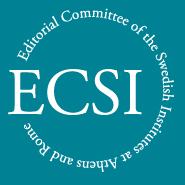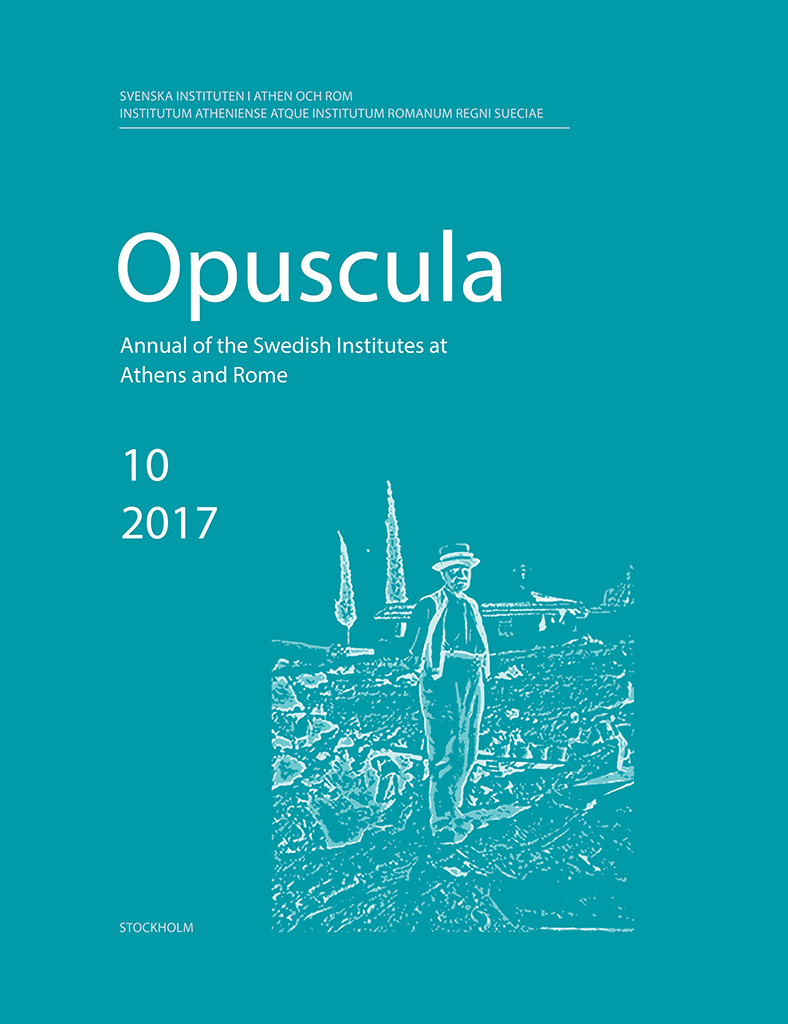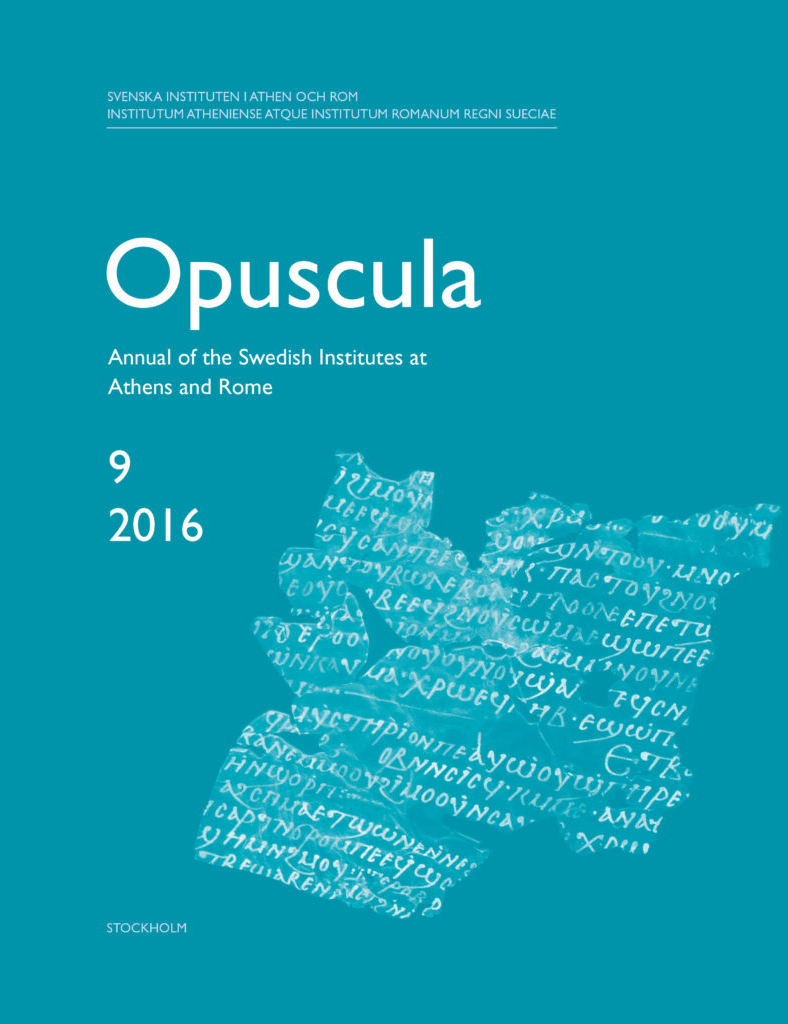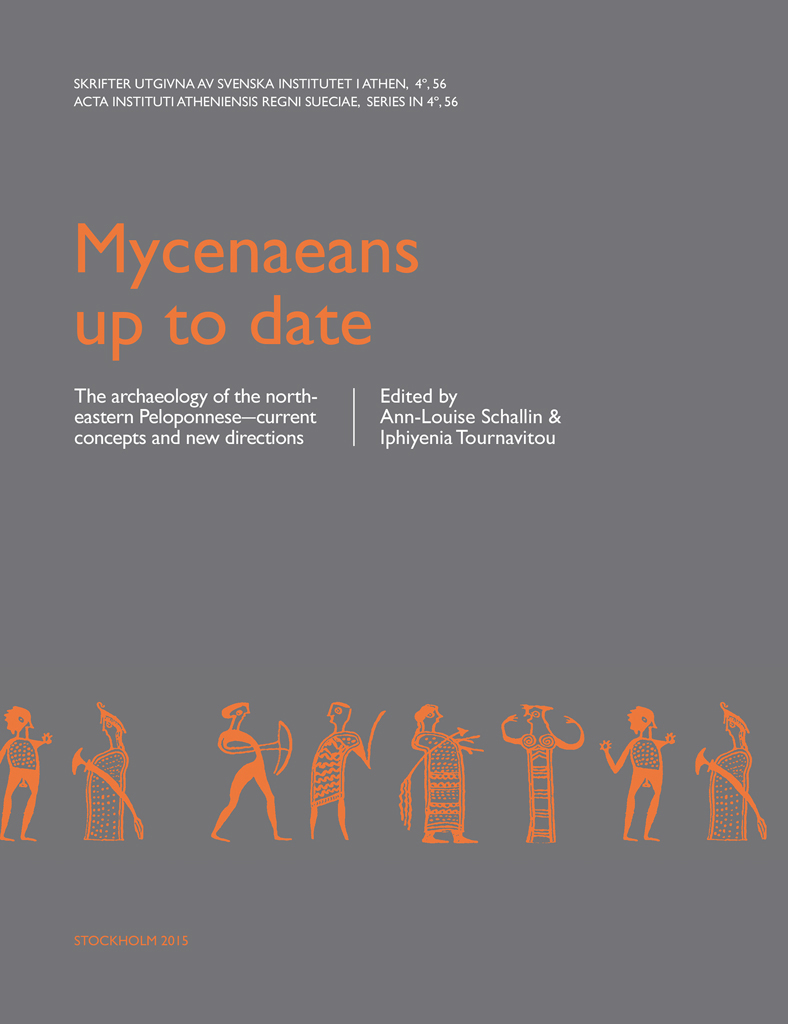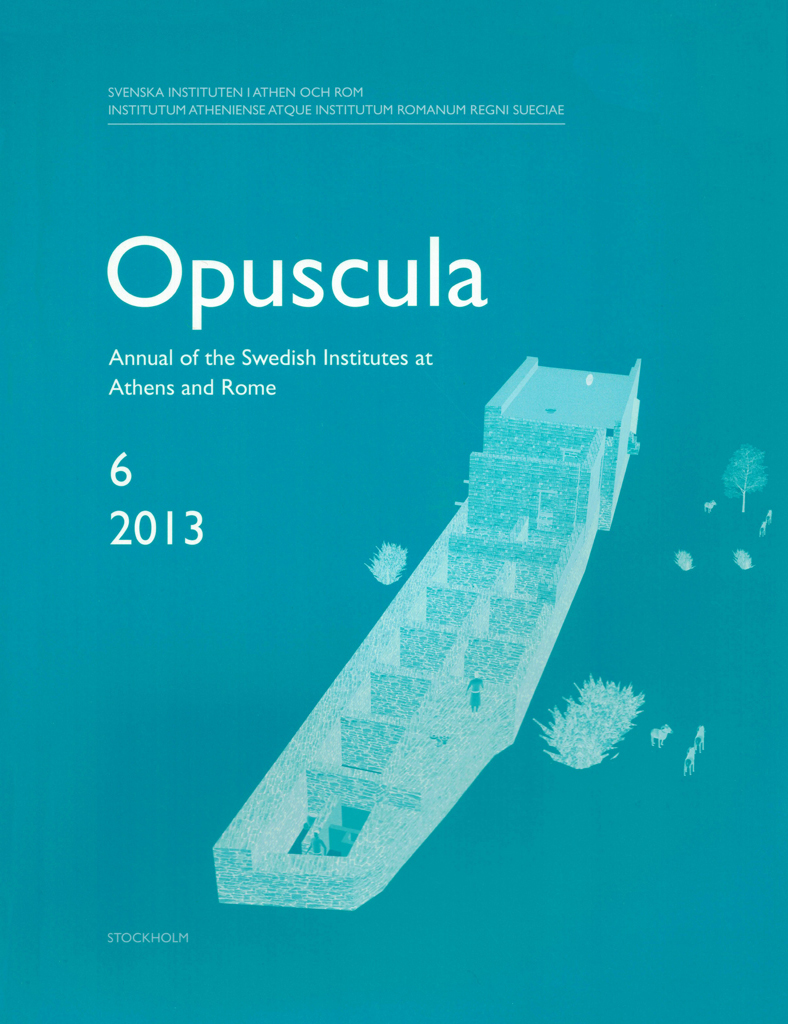Opuscula is published by the Swedish Institutes at Athens and Rome, with the aid of a grant from the Swedish Research Council. Distributed by Eddy.se AB. View journal at ERIH PLUS. All content available with open access. Clay paste characterization and provenance determination of Middle and Late Helladic vessels from Midea By Katie Demakopoulou, Nicoletta Divari-Valakou, Joseph Maran, Hans Mommsen, Susanne Prillwitz & Gisela Walberg Abstract Results of the Neutron Activation Analysis (NAA) of 61 pottery samples of Middle and Late Helladic date from recent excavations in Midea are presented. Chronologically, the sampled pieces fall into two groups, the first of Middle Helladic and Late Helladic I/II, the second of LH III date, with most samples dating to LH IIIB or IIIC. The analyses suggest an Argive/North-eastern Peloponnesian provenance for the majority of the sampled pottery, since 26 of the samples are assigned to the NAA group Mycenae-Berbati (MYBE) and 15 to the NAA group Tiryns (TIR), including their subgroups. In addition to the two main groups the analyses include three other categories: “non-Argive”, unlocated, and singles. The differentiation into a small number of distinct chemical patterns is much more evident in the second chronological group of sampled pottery than…
Opuscula is published by the Swedish Institutes at Athens and Rome, with the aid of a grant from the Swedish Research Council. Distributed by Eddy.se AB. View journal at ERIH PLUS. All content available with open access. People and plants. Piecing together archaeological and archaeobotanical data to reconstruct plant use and craft activities in Mycenaean Tiryns By Melissa Vetters, Ann Brysbaert, Maria Ntinou, Georgia Tsartsidou & Evi Margaritis Abstract Archaeobotanical data are often employed to reconstruct a site’s or a region’s palaeoecology, human use of plants such as agricultural regimes, and the interplay between vegetation and anthropogenic factors in the palaeoenvironment. This paper aims to show that a context-specific integration of such data helps to guide the focus beyond the macroscale and may thus add significantly to the reconstruction of microscale activity areas. New archaeobotanical data from four different find spots in the Lower Citadel of Tiryns, Greece, dating to the Mycenaean Palatial and Post-Palatial periods highlight the importance of combining the analysis of the fruit/seed macroremains with anthracological and phytolith studies and integrating these results in their archaeological contextual study. Based on the data from botanical non-wood macroremains, wood charcoal, and phytoliths, the paper discusses methodological issues such as…
Published by the Swedish Institute at Athens. Distributed by Eddy.se AB. Mycenaeans up to date. The archaeology of the northeastern Peloponnese—current concepts and new directions Edited by Ann-Louise Schallin & Iphiyenia Tournavitou Abstract This volume contains the proceedings of the conference Mycenaeans up to date: The archaeology of the north-eastern Peloponnese—current concepts and new directions, which was held 10–16 November 2010, under the auspices of the Swedish Institute at Athens. The published papers reveal the latest news in the field of Mycenaean archaeology in the Argolid and the surrounding areas. Ongoing fieldwork, as well as new interpretations of the extant archaeological material is presented and discussed in detail. The first part of the volume consists of papers dealing with new, unpublished evidence regarding many of the well-known Argive sites, including Mycenae, Tiryns, Argos, Midea, and the Nemea Valley, among others. The second part is devoted to in-depth studies on a number of major themes, such as Mycenaean architecture, administration, mortuary practices and religion. Contents Ann-Louise Schallin & Iphiyenia Tournavitou, ‘Introduction’ The Argolid Mycenae Elizabeth French, ‘Tending the past, ensuring the future’ Kim Shelton, ‘Pottery and Petsas House: Recent research on LH IIIA2 Mycenae’ Iphiyenia Tournavitou, ‘The East House in the…
Opuscula is published by the Swedish Institutes at Athens and Rome, with the aid of a grant from the Swedish Research Council. Distributed by Eddy.se AB. View journal at ERIH PLUS. All content available with open access. A moving story about exotica: objects’ long-distance production chains and associated identities at Tiryns, Greece By Ann Brysbaert & Melissa Vetters Abstract Studying materials through a chaîne opératoire approach is common practice in studying craft activities. Whilst unravelling a chain of production can be very rewarding, many issues still arise: can all the steps be captured even when no material evidence is present, i.e. how can we approach production chains in the case of inconsistently or partially preserved material in settlement contexts? How may the steps that we are able to observe be contextualized in order to inform us about interconnected activities? In our research project carried out at Tiryns, Greece, we map certain steps through the production and consumption journey of a series of objects and materials, some of which have been referred to as “exotica”. Our aim was to understand the life histories of those specific items, and with that, those of the people associated with them. In problematizing the etic…
